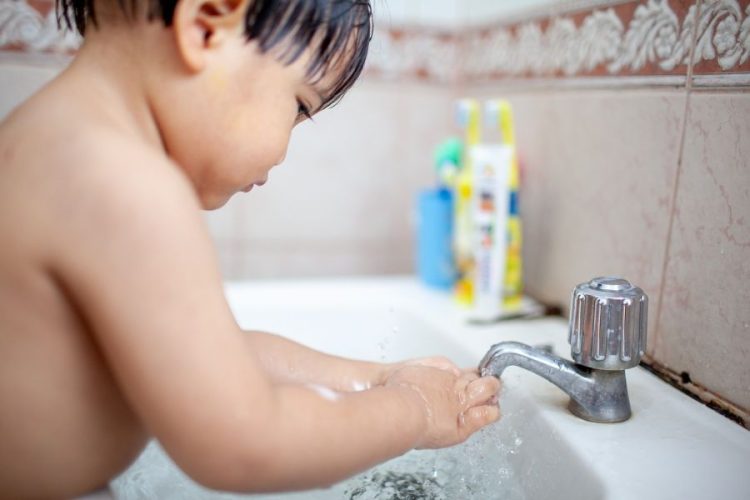How to Encourage Good Hygiene Practices in Childcare – Essential Hygiene Practices in Childcare Explained

Categories :
Proper hygiene is crucial in every childcare setting, as it aids in the maintenance of a healthy environment and helps prevent the spread of infections. The early years of a child's life are a critical period for instilling good hygiene habits, which will serve them well into adulthood. This guide will furnish you with practical strategies to encourage and incorporate essential hygiene practices effectively within your childcare facility.
Handwashing Techniques
Handwashing is undoubtedly the most fundamental and effective hygiene practice. Teaching children the correct handwashing procedure, which includes using soap, warm water, and thorough scrubbing for at least 20 seconds, can drastically reduce the spread of harmful germs. It is important to emphasize the importance of washing all parts of the hands, including the palms, back, fingers, and nails. To make this routine engaging and easy to remember for children, you can use visual aids such as posters with step-by-step instructions or sing catchy handwashing songs.
Respiratory Etiquette
In addition to handwashing, children should be taught the importance of practicing good respiratory etiquette. They should be encouraged to cover their mouths and noses when coughing or sneezing to prevent the spread of droplets containing germs. Using tissues and disposing of them properly or sneezing into the crook of the elbow are effective practices to minimize the transmission of respiratory infections. Consistent practice and gentle reminders will help solidify this etiquette as a habit, ensuring a healthier environment for everyone.
Cleanliness of Toys and Surfaces
Childcare settings often have high-touch surfaces and toys that can quickly become breeding grounds for germs. Regular cleaning and disinfecting of these items are essential to maintain a hygienic environment. It is crucial to establish a daily routine for cleaning and involve children in the process to instill the importance of cleanliness. Encouraging them to help with wiping down surfaces, washing toys, and organizing their play area not only teaches them responsibility but also reinforces the significance of keeping their surroundings germ-free. By regularly disinfecting toys and surfaces, we can ensure that children are playing in a clean and safe environment, reducing the risk of illnesses and promoting their overall well-being.
Healthy Eating Habits
Promoting good hygiene extends beyond cleanliness; it also encompasses making healthy dietary choices. Encouraging children to adopt a balanced diet that includes a variety of fruits, vegetables, whole grains, and lean proteins is vital for their overall health and well-being. Drinking plenty of water and limiting the consumption of sugary or overly processed foods further support their immune system and help keep them healthy. Educating children about the importance of nourishing their bodies properly sets the foundation for lifelong healthy eating habits. By instilling healthy eating habits early on, we can equip children with the knowledge and tools to make nutritious choices throughout their lives, promoting optimal growth, development, and overall wellness.
Professional Hygiene Services and Products
In addition to these practices, consider enlisting the help of professional hygiene services to ensure a thoroughly clean and sanitized environment. To maintain the highest standards of cleanliness and hygiene, utilize the expertise of companies like Excel Hygiene Services, which specializes in ensuring environments are appropriately sanitized and safe. These professionals are trained to address areas often overlooked in standard cleaning practices.
They can also provide advice on optimal cleaning schedules and procedures tailored to your specific childcare setting. Furthermore, invest in professional-grade hygiene products like antibacterial soaps, sanitizers, and disinfectants. These products tend to be more effective at eliminating germs than their consumer-grade counterparts, providing an added layer of protection for the children in your care.
Regular Health Checks
Routine health checks play a significant role in maintaining hygiene in childcare settings. By conducting regular health checks, you can identify early signs of illnesses such as common colds or lice infestations, enabling timely intervention and preventing further spread among children. Incorporating daily health checks into your childcare program ensures a proactive approach to safeguarding the health and well-being of all children. Promptly isolate and seek medical help for children showing symptoms of infectious diseases to minimize any potential risks. Regular health checks also provide an opportunity to educate children about the importance of personal hygiene and handwashing, fostering healthy habits that will benefit them throughout their lives.
Parental Involvement
Parents play a crucial role in promoting good hygiene practices both at home and in childcare settings. Encouraging parents to maintain good hygiene practices at home and actively involving them in teaching these practices to their children creates a unified effort to foster cleanliness. Regular communication with parents about health issues and proper hygiene practices helps reinforce the lessons learned in childcare, ensuring consistency in promoting a hygienic environment for all children. Parental involvement goes beyond teaching hygiene practices; it also extends to creating a supportive environment where children feel comfortable discussing any health concerns or issues they may be experiencing.
Training for Staff
Staff training is vital in maintaining high hygiene standards in childcare settings. Regular training sessions equip your staff with the latest hygiene practices and protocols, ensuring that the entire team is well-informed and aligned. By investing in staff training, you ensure that your childcare setting consistently upholds exemplary hygiene standards. Additionally, staff members should prioritize their personal hygiene, as they serve as role models for the children, further reinforcing the importance of cleanliness and hygiene practices. Ongoing training also allows staff members to stay updated on emerging health issues and best practices, enabling them to provide the highest level of care and support to the children in their care.








